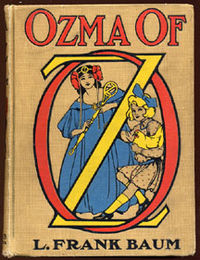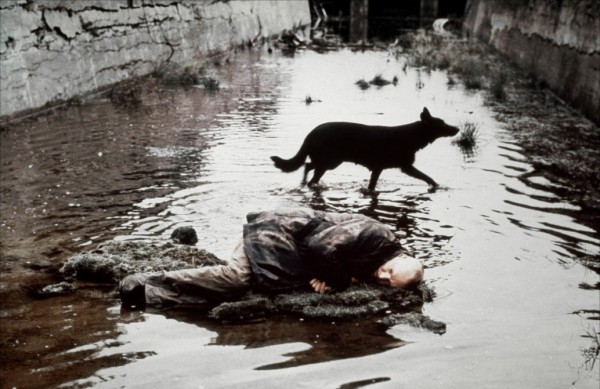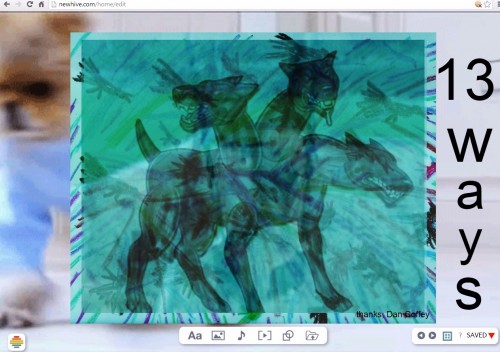we need a poetry czar !!! (for Thanksgiving, maybe ???)
also: send me yr “History Sits in a Chair” poems. I’ll publish good/funny/strange. Ra Ra Ra.
I Don’t Want to Want to Win: A review of Mathias Svalina’s Wastoid

Wastoid
by Mathias Svalina
Big Lucks Books, 2014
166 pages / $12 buy from Big Lucks Books
John Berryman wrote in a letter to Allen Tate, “I don’t write these damned things willingly, you know,” an exclamation that fits the vertiginous, character-addled world of The Dream Songs. Certain writers demonstrate this possessive spirit effortlessly, and Mathias Svalina fits in among them in perfectly discordant harmony. Wastoid, his latest collection from Big Lucks Books, has crawled inside the desiccated body of the Sonnet and formed an impenetrable shell from its remains. Like The Dream Songs, Svalina absorbs the personal into a visionary metamorphosis of the real. They both discard tight form to maintain the bare mechanisms of the sonnet. In Wastoid, men swamp to and from the path to gaze into mirrors, open doors into other doors forever, tell their shitty dads to fuck off, and eviscerate themselves to gift themselves to the lover.
Early on, Svalina gives us two aesthetic choices—substance or form—on how to “tame the unrammable will,” a nod that feels self-conscious, an impossible promise. The unrammable will, like Berryman’s immutable drive for substance and form, is a concept that gains traction from isolation. And isolation, more than in any other poetic form, carries a potent smell in the sonnet. While I don’t want to convince anyone that this early moment is manifesto’s sneaky thread, it points to a duality that is signature in these poems, a duality also signature for the sonnet. The lover is the volta sluicing the flood, spilling the guts, trapping the speaker between water and whale. Any other feature of the sonnet falls to the wayside, because, in this heightened realm of lovers all called “Wastoid,” it is only the slaughter of arguments that count for anything.
Most of the poems organize themselves around the lover’s growing imperialism, fame, opposition, deterioration. Pick your poison, the lover seems to say, as their agency bloats into objects while the speaker flattens under the power of decorum, becoming more and more corporeal. The lover is an obstacle when the speaker is crushed beneath doors. The lover is a window when the speaker is only skin. The lover is a trampoline when the speaker is a “canyon killing a praying man.” The lover is a tinfoil quilt when the speaker splits into two writers. Steeped in the logic of the poems, such declarations make perfect sense. We know that the subject-predicate is at war with itself, and the battle is pathetic and terribly effective. Take this poem in full:
In “Dreamsong 88: Op. posth. no. 11,” Berryman concludes “I didn’t hear a single word. I obeyed.” We understand authority to work similarly in Wastoid. We are not made complicit to the laws of Svalina’s verse, though they circle in curious carousel around a central heartbreak. If there are laws, they exist in a trail of essentialized anguish: As above, “There are so many things that command the attention of men”; elsewhere, “To immerse oneself in another man is to become a contraption,” “It is fear that makes the world so solid,” “Even marvelous things can be effortlessly forgotten.” Most poems carry similar assertions. Svalina ballasts his domestic and nautical imagery with accessible phrases like these, and through this negotiation of reason and landscape do we find ourselves clasped entirely in his spell.
Nobody in any relationship ever wins, though the heroic sonnet might masturbate itself into a frenzy of false victory. This is how the poet obeys. Shakespeare said in one of his sonnets to a young dead boy, “For having traffic with thyself alone / Thou of thyself thy sweet self dost deceive.” Gross, Shakespeare, pull yourself together. Svalina is as alone when he writes, “I spend most of my day in the office looking at porn. In porn love is always demonstrated: one man comes on another man’s face. One man comes on another man’s face—it is like forgiveness and the photographer is the priest.” Svalina deconstructs his loneliness in these banal settings, fuses it with other more wild lonelinesses so both can resist forgiveness, pornographic or fatalistic or otherwise. Always there is a sense that to say anything is to say every version of its self-destruction:
Svalina is not afraid of the more Romantic imagery associated with the sonnet because of the ease of dismantling it: Time, Light, Hearts, Nature/Naturer, Blood. They exist in the same terrain as Home Depot parking lots, bear genitals, and the Chicago Manual of Style. The lover transforms only when these essentialized ideas of Time and Light and Nature touch this other suburbia. Sometimes, the lover is cruel, a result of the trope out-troping the trope. Sometimes the lover feels like Prince and we can’t hate him because he sings against the insect stings and horses, “I want to be your brother / I want to be your mother and your sister too / There ain’t no other / That can do the things I’ll do to you.” In either case, this is a book chock full of men, writhing and fucked inside a place that can no longer writhe or fuck. Out of the heavily guarded images, we are given these manic parables of disorder. The men roam forever sick inside the seasons of this disorder. It has been a long time since I’ve been this excited about a book made exclusively of men. Svalina can’t help but expertly turn phrases inside out, resolve to find their invisible meanings. Each poem is its own collection of poems, its own annihilation of his collection of poems. Like men they have the power to deny or condemn as they have the power to enable and motivate further. The simple quiet of his wasted world goes on and on: “The ATM screen tells me press enter to exit. I must enter to exit.”
***
October 16th, 2014 / 10:42 pm
Thirteen Ways of Looking at HTMLGiant (by Dan Coffey)
*******
after I’d tweeted
happy/sad/elated that htmlgiant’s closing??? … send me obituaries/goodbye notes, etc … i’ll publish most of them (i think)….
Dan Coffey sent me the following poem:
Thirteen Ways of Looking at HTMLGiant
I
Among twenty=seven letters,
The only playable tile
Was the Scrabble blank.
II
I was of three heads,
Like a dog
You know which kind and what I guarded.
III
The gyre whirled and whirled toward the Jacuzzi.
We all got pantsed.
October 15th, 2014 / 9:41 pm
why was the ‘mean monday/justin taylor’ post taken down
EDIT: no but for real, i’m not trying to be cute/passive aggressive/faux confrontational like people in the comments, i really want to know.
25 Points: Ozma of Oz
 |
Ozma of Oz
by L. Frank Baum
HarperCollins, 1989
272 pages / $6.95 buy from Amazon
|
1. This past year, my 5-year-old has been obsessed with me reading The Wizard of Oz to her over and over and over. While I have loved that book for decades, I reveal to her it is a series – there are more!
2. So we begin book two in the Oz series, The Marvelous Land of Oz. Which turns out to not be marvelous. “Where is Dorothy?” my daughter asks. In fact, Dorothy is nowhere to be found. Instead of Dorothy, there is a sorceress who is trying to force her ward Tip to drink a potion that will turn him into a statue. The sorceress is kind of scary.
3. Though the sorceress is not why we stop reading the book.
4. We stop reading when the ridiculous all-girl Army of Revolt storms the Emerald City, making the men mind the children and do the housework, only to get scared off by mice.
5. We move onto Treasure Island which I realize, early on, is not appropriate for a 5-year-old because of large quantities of murder and rum, finally settling upon Pippi Longstocking which, despite the heroine’s coffee habit and dead parents, appears a good fit. Then it is back to The Wizard of Oz.
6. Then instead of rereading The Wizard of Oz again, I suggest why don’t we try book three in the series (Ozma of Oz). The book is #83 on the School Library Journal’s list of the best children’s novels ever. Unsurprisingly, The Marvelous Land of Oz is not on the list. Still, I am nervous, making my daughter nervous. Reading bad books is an awful experience, but reading bad books aloud to your child is much worse, as it takes longer and skimming is difficult to do.
7. In the case of Ozma of Oz, There was no need to be nervous. It turns out I love this book. I have loved this book. This is the book with the lunch-box tree. “The tree seemed to bear all the year around, for there were lunch-box blossoms on some of the branches, and on others tiny little lunch-boxes that were as yet quite green, and evidently not fit to eat until they had brown bigger. The leaves of this tree were all paper napkins, and it presented a very pleasing appearance to the hungry little girl.” Inside the lunch-box was, “nicely wrapped in white papers, a ham sandwich, a piece of sponge-cake, a pickle, a slice of new cheese and an apple. Each thing had a separate stem, and so had to be picked off the side of the box…”
8. But the tin dinner-pail tree is even better. The dinner-pails grew on another tree and inside each pail was a thermos of lemonade, plus “three slices of turkey, two slices of cold tongue, some lobster salad, four slices of bread and butter, a small custard pie, an orange and nine large strawberries, and some nuts and raisins. Singularly enough, the nuts in this dinner-pail grew already cracked, so that Dorothy had no trouble in picking out their meats to eat.” I remember these trees. These trees are one of the most vivid memories of reading I can recall as a child.
9. I think it was a tragedy of extreme proportions to the child-me that such trees were nowhere to be seen in my Chicagoland home. The lack of such trees was proof that there had been some mistake and that I was living in the wrong world.
10. This is also the book with Princess Langwidere who has a room full of velvet lined cupboards and, inside each cabinet, is a different head that she can put on or take off whenever she likes. Unfortunately, when Dorothy is visiting, the princess puts on the mean head.
October 15th, 2014 / 12:58 pm
This Isn’t Easy for Me by Julian Berengaut
 Julian Berengaut’s new novel, This Isn’t Easy for Me, a story told entirely in dialogue, is available today. Jen Michalski had some nice words for it:
Julian Berengaut’s new novel, This Isn’t Easy for Me, a story told entirely in dialogue, is available today. Jen Michalski had some nice words for it:
“In Julian Berengaut’s This Isn’t Easy for Me, two strangers—Sabine, a German physicist, and Renata, an economist and philanthropist—meet for tea, one with a confession, the other a proposition. What follows is not a novel, but a conversation—a conversation that becomes more than a novel. It is a sweeping look at history, love and relationships, science, mathematics, and most importantly, women. Berengaut has written Sabine and Renata with as much tenderness, respect, and understanding as any woman writer.”
—Jen Michalski, The Tide King and Could You Be With Her Now
So did Linda Franklin:
“… here’s a book for people who love language. Language of literature, but also of physics, history, and the tangles you make with the daily news and private memories. Inside here is sex and sin and religion and dietary restrictions. This Isn’t Easy for Me is also for people who wish they could let their minds go wild—because by the end of the book, they will. From Conan Doyle to Pushkin, from Diderot to Godel, from Jewish jokes to Dumas to the Bible to Babel, bring some sticky notes for this lively marathon conversation between two learned women, so you can jot all the words, books, and your own ideas that you’ll want to follow up on later. The only problem here is that, as much as wish you could be, you aren’t there to join in.”
—Linda Franklin, Barkinglips
Formerly Anonymous Review: Zone
 |
Zone
by Mathias Énard
Open Letter Books, 2010
517 pages / $16.95 buy from Open Letter Books
Rating: 8.0
|
A French-born Croatian boards a train in Milan. He stows an overfull suitcase beside his seat. He’s hungover, buzzed on amphetamines, and pursued by ghosts. Outside, it’s raining and cool. As the train leaves the station, this Croat, Francis Servain Mirković, an analyst in the French Intelligence, begins to mine the incriminating documents he carries. And as he does, he begins to melt into the Zone. The following ten chapters, spanning 500 odd pages, unravel in a single breath.

Mathias Énard, the brilliant French novelist, and winner of the Prix Decembré, employs no periods or paragraph breaks in his astounding Zone, published in 2010 by Open Letter Books. And while the novel is framed by this train ride (Milan to Rome), the inevitable plotlines recall the desperate noir of Jim Thompson, with more than a hint of László Krasznahorkai.
Énard’s “Zone” is vaguely the territory between Tangier and Beirut, (“Ceuta, Oran, Algiers, Tunis, Tripoli, Benghazi, Alexandria, Port Said, Jaffa, Acre, Tyre, Sidon,/ or else Valencia, Barcelona, Marseille, Genoa, Venice, Dubrovnik, Durres, Athens, Salonika, Constantinople, Antalya, Lattakiyah,/ or else Palma, Cagliari, Syracuse, Heraklion, Larnaka”) otherwise called the Mediterranean world, “A complex of seas…broken up by islands, interrupted by peninsulas, ringed by intricate coastlines” (Fernand Braudel); and definitively a landscape of despair, “here the mud is made from our tears.”(Charles Baudelaire)
As the spy retrieves his documents, Énard charts the history of twentieth century authoritarian violence across the Mediterranean/ Middle East. And from Ustashi’s, to Falangists, to the Baathists of Aleppo, this history is brutal.
Although Énard lays down boundaries and identifies this Zone of despair, he does not presume exceptionalism.
Instead, he emphasizes the extent to which the violence across the Zone conforms to a global system of violence, specifically highlighting the wars in the Balkans, Lebanon, and the occupied territories. Like J.G. Ballard’s terrific War Fever, he identifies these proxy wars as a predictable symptom of the current world order. Its no coincidence they play out far from the centers of global power. His observations echo Baudrillard, who famously suggested the prisons complexes of the United States obscure the inherently carceral character of contemporary American society.
When you knock around a lot of libraries, you end up reading a lot of the same. Zone is not that. Like Krasznahorkai, or Danielewski, Énard moves in darkness and depth, and he comes up with something exceptional.
October 14th, 2014 / 12:00 pm
Quilts (Part 1)
These are collages I made in 2012 and 2013. They were made with paper, tape, and an x-acto knife with a swivel blade. They all measure 12×12″. Click on images to enlarge.
For previous coverage of quilts on HTMLGiant, please see David Fishkind’s thoughtful post from April, 2013.
I’ll post part 2 next week.
25 Points: If I Really Wanted to Feel Happy I’d Feel Happy Already
 |
If I Really Wanted to Feel Happy I’d Feel Happy Already
by Jordan Castro
Civil Coping Mechanisms, 2014
162 pages / $13.95 buy from Amazon
|
1. This book and it being read by me results in me saying that Jordan Castro is like a really cool stand-up comedian sometimes.
2. A thoughtful, off-beat, occasionally philosophical stand-up comedian who plays to small audiences of people who are ‘in the know’ but could sell out bigger shows but perhaps wouldn’t want too but might think about it a little bit but wouldn’t want too.
3. The title is another one of those fucking ace, long titles isn’t it. Have you read it (see above)? Good isn’t it. Becoming something of a tradition isn’t it – the long, good, title.
4. Castro is…no, no I’m not going to call him that. Not going to just call him by his surname like they do in reviews. It feels a bit like a teacher talking about a pupil or a factory owner (A factory owner? Fuck! What century am I in?) talking about a worker in a slightly patronising way. So, yeah. Jordan Castro is a fan of circular reasoning, it pops up throughout the book. He gets all circulus in probando (Wikipedia) on our ass all the time.
5. Or maybe he’s not a fan of circular reasoning. Maybe these things trap him and impede his life like they do with all of our lives and he finds it’s best to try and write about them to circumvent this trap slightly and if we read him we can slightly circumvent our own circular traps. Just slightly. I don’t think he’s trying to write a miracle cure.
6. This book isn’t a miracle cure. Never believe in miracle cures. They don’t exist. They’re all scams. This book isn’t a scam. This book is upfront about things, about everything that’s going on in the minutiae of everyday life. It’s not a miracle cure but it might help. Plus it’s really funny and entertaining too, which helps.
7. The tale of a character named ‘Sarah’ that starts on p.95 is the tale of everyone nowadays who is under 40 and many over 40 and soon everyone in the western world and later everyone in every other type of world (this latter depends on a few things that are currently, to put it politely, ‘in flux’ in global affairs) but they won’t all be named Sarah.
8. In this one:’got a lot of allergies/been thinking about literature/for maybe five hours’, he’s secretly thinking about the sounds of words at the end of lines like an old fashioned poet but is hiding it even though he’s made it really subtle and really good.
9. Pages 115-119 make me realise that social media is so bedded-in in America that people really do view it as part of their real identity and really do agonise about what statuses they type and how they’ll be perceived and how many ‘Likes’, ‘Comments’, ‘Notes’ or whatever it will/should get in a way that is only really just starting to happen in the UK and in a way which sometimes depresses them.
10. I read somewhere in an interview with Noah Cicero (it could’ve been from ages ago, he might have changed his opinion by now, I don’t know. Anyway, he’s entitled to his opinion) that he didn’t really rate David Foster Wallace as being too much to do with Alt-Lit type of stuff but point number 9 makes me want everyone to read this essay by David Foster Wallace on television and then for someone else, someone who is still alive, and someone who, like me, doesn’t have to work full-time to re-write that essay, updating it for today’s social media landscape and for us all to see how prescient it was in the first place.
October 13th, 2014 / 12:00 pm


